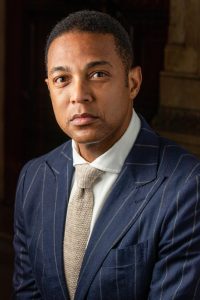Baruch music professor of nearly 35 years dies at 63
March 18, 2022
Retired music theory professor Philip Lambert, from Baruch College’s Department of Fine and Performing Arts, died at 63 years old due to a malignant brain tumor.
Lambert retired from teaching at Baruch and the CUNY Graduate Center in 2021 after teaching music at Baruch for almost 35 years starting in 1988. He served two terms as the chair of the Fine and Performing Arts Department while at Baruch.
“In a professional world populated largely by pushy, loud New Yorkers, Phil stood out for his gentleness, his good humor and good sense, and his ability to remain quiet for surprisingly long periods of time, especially during faculty and committee meetings,” Graduate Center music professor Joseph Straus was quoted as saying in a tribute to Lambert on the center’s website. “But when he did speak, people listened because they knew they would hear something worth hearing. His friends, his colleagues, and our entire field, will miss him very much.”
More than just the professor who established the teaching of keyboard harmony and the music theory minor at Baruch, Lambert was also well known in the field of music theory for the many books and textbooks he authored on the subject.
“Professor Philip Lambert taught music to thousands of Baruch students over his nearly 35-year career here,” Weissman School of Arts and Sciences Dean Jessica Lang said in an emailed statement to The Ticker. “He was a wildly popular instructor and taught music theory to students at all levels at Baruch and the Graduate Center. He was also a valued colleague: thoughtful, funny and generous. He will be missed.”
His book, “The Music of Charles Ives,” which was derived from his dissertation, is what brought him prominence in his scholarly career and, according to Straus, is still used as the standard analytical study of Ives’s music.
Lambert went on to also edit “Ives Studies” and to write “Inside the Music of Brian Wilson: The Songs, Sounds and Influences of the Beach Boys’ Founding Genius,” “To Broadway, To Life!: The Musical Theater of Bock and Harnick,” “Alec Wilder,” “Basic Post-Tonal Theory and Analysis” and “Principles of Music.”
“A brief list like this gives a sense of the range and lasting importance of his scholarship, but it doesn’t say much about what a wonderful colleague and person he was,” Straus said.
News of his death was announced from Weissman’s social media accounts, including its Instagram, which included a portion of text written in the Weissman School’s tribute to Lambert.
“He was a devoted educator. In addition to his classroom duties, he individually tutored hundreds of students in theory and composition during his academic career, also mentoring CUNY doctoral students and shepherding dissertations,” the Instagram post and Weissman tribute — which were written by Baruch music professor Andrew Tomasello — read in part. “He served FPA for two terms as chairman, and with his brilliant mind, dry wit, and quiet presence, he was always a steady and secure source of advice and guidance.”
This sentiment is shared by Department of Fine and Performing Arts Chair Anne Swartz, who is also a music professor.
“Professor Philip Lambert was a beloved teacher, distinguished scholar, and valued colleague, whose presence is dearly missed by all who knew him,” she told The Ticker in an emailed statement. “He was deeply devoted to his students and his thoughtfulness manifested itself in so many ways. Every semester he spearheaded the Baruch in Concert event and organized performances of his composition students’ string quartets with the Alexander String Quartet.”
Baruch held a memorial service celebrating Lambert’s life on March 12 in person at the B3 Lobby and on Zoom.
“With Professor Lambert’s encouragement, these events enriched our students and offered valuable opportunities to expand their playlists in performance and composition,” Swartz said. “Sharing these rich musical experiences with our students was always a joyful occasion, and Professor Lambert paved the way for them.”
Swartz continued, “Professor Lambert will be sorely missed by all of us. His commitment and passion for music will forever remain with all who connected with him as a teacher, friend, or colleague. The Department of Fine and Performing Arts extends deepest sympathies to his family and to all who loved and admired him.”
Lambert is survived by his wife, Diane, and his two daughters.


![[Philip Lambert] -](https://theticker.org/wp-content/uploads/2022/03/Philip-Lambert-Weissman-School-of-Arts-and-Sciences-644x900.jpeg)





